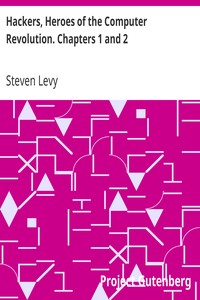| Summary |
"Hackers, Heroes of the Computer Revolution" by Steven Levy is a historical account written in the early 1980s that explores the origins and evolution of the hacker culture during the formative years of computing in the 1950s and 1960s. The book provides an in-depth look at the pioneers who shaped the early computer revolution, examining their innovations and the philosophies that fueled their passion for technology and exploration. It highlights how these individuals viewed computers not merely as tools but as a medium for creativity, collaboration, and learning. The first two chapters delve into the lives of young hackers at the Massachusetts Institute of Technology, particularly focusing on the Tech Model Railroad Club (TMRC) and its influence on the hacker ethos. Characters like Peter Samson and Alan Kotok are introduced, showcasing their insatiable curiosity and hands-on approach to understanding and manipulating technology. Chapter one sets the stage by detailing their explorations and interactions with early computers like the TX-0, illustrating the excitement and motivation behind hacking. Chapter two introduces the Hacker Ethic, a set of beliefs that promotes open access to information, distrust of authority, and the conviction that anyone should be judged by their coding abilities rather than superficial criteria. Overall, the content paints a vivid picture of a community driven by passion, creativity, and the need to understand the machines that were revolutionizing their world. (This is an automatically generated summary.)
|

